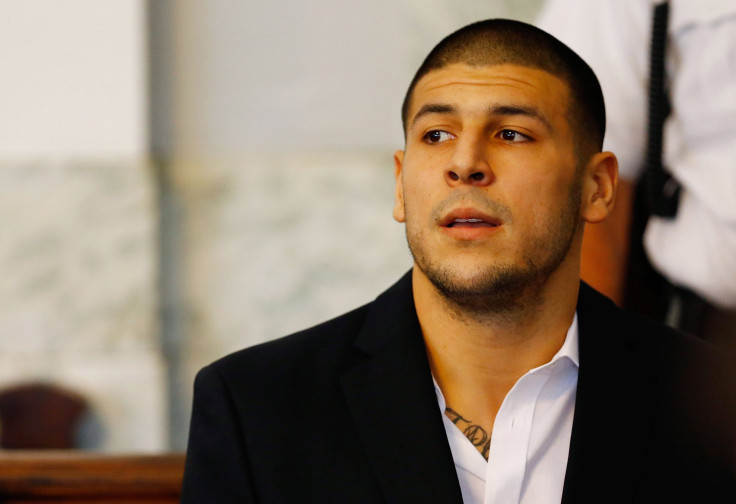NFL Will ‘Vigorously’ Fight Aaron Hernandez Lawsuit Over CTE

The National Football League (NFL) vowed last week to “vigorously” fight the lawsuit against the league and the New England Patriots filed by Hernandez’s family. The lawsuit alleged that both the team and the league failed to “disclose, treat or protect him from the dangers” of chronic traumatic encephalopathy (CTE), a degenerative brain disease resulting from repeated head trauma.
“We intend to contest the claim vigorously,” NFL spokesman Joe Lockhart told reporters on a conference call, according to Reuters Friday. “Any attempt here to paint Aaron Hernandez as a victim, we believe is misguided. His personal story is complex and doesn’t lend itself to simple answers.”
The lawsuit was filed last week in Massachusetts by his lawyer, Jose Baez, and his fiancée, Shayanna Jenkins-Hernandez, on behalf of the couple’s 4-year-old daughter, Avielle Janelle Hernandez.
“Aaron had Stage III CTE usually seen in players with a median age of death of 67 years,” said the lawsuit. “Aaron played football in the National Football League for the New England Patriots for three seasons starting in 2010. By the time Aaron entered the NFL, in 2010, [the Patriots and NFL] were fully aware of the damage that could be inflicted from repetitive impact injuries and failed to disclose treat, or protect him from the dangers of such damage.”
It further alleged that the NFL and the Patriots “were fully aware of the damage that could be inflicted from repetitive impact injuries and failed to disclose, treat or protect him from the dangers of such damage.” The suit seeks $20 million for “redress for the loss of parental consortium she has experienced based on the negligent conduct of [Hernandez’s daughter] that deprived her of the companionship and society of her father.”
Hernandez died by suicide at age 27 after he hanged himself in his prison cell at the Souza-Baranowski Correctional Center in Shirley, Massachusetts. At the time of his death, he was serving a life sentence for the 2013 murder of Odin Lloyd.
The week before he was found dead in his cell, the former star athlete was acquitted of the double homicide of Daniel de Abreu and Safiro Furtado outside a Boston nightclub in July 2012. His conviction for the murder of Lloyd was later vacated posthumously, per a Massachusetts legal doctrine, because he had not exhausted his appeals process.
According to the lawsuit, the NFL and the Patriots “knew, or should have know, it was not safe for Aaron to continue playing football and that extending Aaron’s football career placed him at greater risk for neurological degeneration.”
© Copyright IBTimes 2024. All rights reserved.











